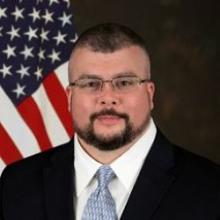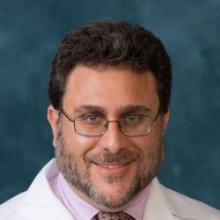
The recent approval of intramuscular midazolam (Seizalam®) for acute treatment of status epilepticus (SE) is an important advancement for the treatment of epilepsy and chemical nerve agent exposures. However, effective treatments that improve neuropathic outcomes after SE becomes refractory to benzodiazepines is a common unmet need for both epilepsy and nerve agent researchers.
This virtual workshop will convene preclinical and clinical researchers, as well as relevant stakeholders to discuss and define the indications of potential therapeutics needed to improve outcomes following SE. Topics of discussion will include refractory SE, post SE neuropathology, current clinical trials, gaps in the research for follow-on treatments and barriers to transitioning therapies to the clinic. Outcomes of the workshop will include a clearer understanding of the unmet therapeutic needs and identification of key gaps in the research, increasing the potential for new therapeutics development.
Agenda and Presentations
February 28, 2023
**All times are Eastern Standard Time (EST)
| Welcome and Opening Remarks | 10:00 AM Welcome to the NINDS Workshop on Status Epilepticus Walter J. Koroshetz, MD 10:10 AM Shardell Spriggs, PhD
10:20 AM Vicky Whittemore, PhD |
|---|---|
| Patient Advocate Address | 10:30 AM The Family Perspective of Status Epilepticus(pdf, 1327 KB) Nora Wong, PhD |
| Keynote Addresses | 10:45 AM From Terrorists, Without Love: Nerve Agent-Induced Status Epilepticus and its Treatment(pdf, 2102 KB) Jonathan Newmark, MD 11:10 AM Benzodiazepine-Refractory Status Epilepticus: Mechanisms and Treatment(pdf, 4470 KB) Jaideep Kapur, MBBS, PhD 11:35 AM Q & A 11:45 AM BREAK (30 Minutes) |
Clinical Unmet Needs and Current Clinical Research Moderators: Adam Hartman, MD, Program Director, Division of Clinical Research, NINDS and Shardell Spriggs, PhD | 12:15 PM Clinical Unmet Needs in Refractory Status Epilepticus, including SRSE and NORSE(pdf, 3494 KB) Lawrence J. Hirsch, MD 12:35 PM Clinical Trials of Emergency Treatments for Status Epilepticus Robert Silbergleit, MD
12:55 PM Ganaxolone in Refractory Status Epilepticus(pdf, 1704 KB) Maciej Gasior, MD, PhD 1:20 PM Q & A 1:30 PM BREAK (15 Minutes) |
| Patient Advocate Address | 1:45 PM Short and Long-term Effects of Acute Organophosphorus Pesticide Self-poisoning(pdf, 1558 KB) Nicholas Buckley, MD |
| Breakout Sessions | 2:00 PM Parallel Sessions: Breakout 1: Refractory SE, Super-refractory SE, and New Onset Refractory SE Moderators: Lawrence J. Hirsch, MD Yale School of Medicine Howard P. Goodkin, MD, PhD, University of Virginia Health Breakout 2: Long-term Sequalae after Status Epilepticus Moderator: Sara E. Hocker, MD, Mayo Clinic Breakout 3: Unmet Needs in Clinical Trials (Rampart / ESETT) Moderator: Jaideep Kapur, MBBS, PhD, University of Virginia, Brain Institute 2:45 PM Workshop BREAK and Time for Synthesis of Breakout Reports (30 Minutes) 3:15 PM Reports from Breakout Sessions and Q & A |
| Poster Session | 4:00 PM Transition to ePoster Session, Gather Town 5:00 PM Adjourn |
March 1, 2023
| Welcome and Opening Remarks | 10:00 AM Shardell Spriggs, PhD |
|---|---|
Translational and Preclinical Unmet Needs and Current Research, Part I Moderators: Vicky Whittemore, PhD and Shardell Spriggs, PhD | 10:15 AM Epilepsy Therapy Screening Program Yogi Raol, PhD 10:30 AM U.S. Military Needs for Clinical Management of Benzodiazepine-Refractory Status Epilepticus Following Nerve Agent Exposure Anthony Cardile, DO, FACP 10:45 AM Rapid Acquisition and Investigation of Drugs for Repurposing (RAIDR): Progress and Ambition(pdf, 2722 KB) Lauren Quattrochi, PhD 11:00 AM A Rat Model of Super-refractory Status Epilepticus(pdf, 4310 KB) Hilary McCarren, PhD 11:20 AM Pharmacoresistant Status Epilepticus – Combination Therapy, Long-term Effects and Alternative Animal Models Lucille Lumley, PhD 11:40 AM Q & A 11:50 AM BREAK (30 Minutes) |
| Keynote Addresses | 12:20 PM Preclinical Research Gaps in Chemical-Induced Seizures(pdf, 1420 KB) Pamela Lein, PhD 12:45 PM How Understanding the Sequelae of Acute Chemical Threat Intoxication can Inform Therapeutic Development for Epilepsy Amy Brooks-Kayal, MD 1:10 PM Q & A 1:20 PM BREAK (10 Minutes) |
| Translational and Preclinical Unmet Needs and Current Research, Part II | 1:30 PM Maria Braga, DDS, PhD 1:50 PM Laxmikant Deshpande, PhD 2:10 PM Ganaxolone as a Neurosteroid Anticonvulsant for OP Refractory Status Epilepticus: A Decade-Long Journey to Bring it from Bench to Clinic D. Samba Reddy, PhD 2:30 PM Status Epilepticus: View from the Bench Douglas A. Coulter, PhD 2:45 PM Real World Implementation of Status Epilepticus Care: Seizing an Opportunity for Improvement(pdf, 2450 KB) Elan Guterman, MD, MAS 3:00 PM Q & A 3:15 PM BREAK (15 Minutes) |
| Breakout Sessions | 3:30 PM Parallel Sessions: Breakout 4: Animal Models for Therapeutic Development Moderators: Hilary McCarren, PhD, US Army Medical Research Institute of Chemical Defense Maria Braga, DDS, PhD, School of Medicine, Uniformed Services University of the Health Sciences Breakout 5: Considerations for Academic Engagement and Regulatory Pathways Moderator: O’Neill D’Cruz, MD, MBA, FAAN, OD Consulting and Neurological Services, PLLC Breakout 6: Barriers in Translational Research Studies and Therapeutic Advancement Moderators: Michael A. Rogawski, MD, PhD, University of California, Davis James Cloyd III, PharmD, University of Minnesota 4:15 PM Workshop BREAK and Time for Synthesis of Breakout Reports (30 Minutes) 4:45 PM Reports from Breakout Sessions and Q & A |
| Closing Remarks and Adjournment | 5:30 PM Shardell Spriggs, PhD |
Speakers and Moderators
Keynote Speakers
Jonathan Newmark, MD
Senior Medical Officer, Office of Biodefense Research and Surety
National Institute of Allergy and Infectious Diseases;
Adjunct Professor of Neurology, F. Edward Hebert School of Medicine, Uniformed Services University of the Health Sciences
Department of Neurology, Washington DC Veterans Affairs Medical Center
Jaideep Kapur, MBBS, PhD
Eugene Meyer III, Professor of Neuroscience and Neurology
Director, University of Virginia, Brain Institute
Amy Brooks-Kayal, MD
Professor and Chair, Department of Neurology
Andrew John Gabor, MD, PhD Presidential Endowed Chair
Co-Director, UC Davis CounterACT Center of Excellence
University of California, Davis, School of Medicine
Pam Lein, PhD
Professor of Neurotoxicology
Chair, Department of Molecular Biosciences
Director, UC Davis CounterACT Center of Excellence
University of California, Davis, School of Veterinary Medicine
Speakers and/or Moderators

Maria Braga, DDS, PhD - Speaker and Moderator
Professor of Anatomy, Physiology and Genetics
School of Medicine, Uniformed Services University of the Health Sciences
Maria Braga is a Professor of Anatomy, Physiology and Genetics in the F. Edward Hebert School of Medicine at Uniformed Services University of the Health Sciences. Her research interests focus on identifying pathophysiological mechanisms underlying epilepsy and psychiatric illnesses related to stress and anxiety. A key brain region associated with these disorders is the amygdala, a temporal lobe structure that plays a central role in emotional behavior, and is linked to a variety of psychiatric disorders. In addition to its role in affective disorders, the amygdala also plays a central role in the pathogenesis and symptomatology of epilepsy. This is mainly because neuronal circuits in the amygdala—particularly the basolateral nucleus of the amygdala (BLA)—are exceptionally prone to hyperexcitability, and, therefore, very susceptible to seizure-triggering and/or epileptogenic insults. By gaining a better understanding of the mechanisms regulating neuronal excitability in the BLA, and finding pharmacological means to exploit these mechanisms, she hopes to develop improved therapies for a variety of neurological and psychiatric illnesses, including epileptogenesis, seizure-induced brain damage, and stress-related psychiatric disorders.

Amy Brooks-Kayal, MD - Speaker
Professor and Chair Department of Neurology Co-Director
UC Davis CounterACT Center of Excellence University of California, Davis, School of Medicine
Amy Brooks-Kayal, MD is Professor and Chair of the Department of Neurology, Andrew John Gabor, M.D., Ph.D., Presidential Chair in Neurology and Co-Director of the CounterAct Center of Excellence at University of California Davis. She clinically specializes in the care of children with complex epilepsy and her research focuses on the cellular and molecular changes involved in the transition of the brain from normal to epileptic, with emphasis on identifying signaling pathways that regulate epileptogenesis and can be targeted for the development of novel therapeutics. Dr. Brooks-Kayal is a past president of AES, former member of NINDS Council, and is a current director of the ABPN and Associate Editor for Epilepsy for Annals of Neurology. She was the 2019 recipient of the AES Founders Award and a 2021 recipient of the ILAE Ambassador for Epilepsy award for her international contributions to activities advancing the cause of epilepsy.

Nicholas Buckley, MD - Speaker
Professor of Clinical Pharmacology, University of Sydney
South Asian Clinical Toxicology Research Collaboration
Nick Buckley, MD FACMT FAACT, is Professor of Clinical Pharmacology at the Sydney Medical School, a consultant clinical toxicologist at the NSW Poisons Information Centre and admitting toxicologist at RPA Hospital Sydney, Chair of the Editorial Advisory Board of the Australian Medicines Handbook, Chair of the Australian Therapeutic Guidelines Toxicology and Toxinology writing group, a past President of The Asia Pacific Association of Medical Toxicology, and Research Director of the South Asian Clinical Toxicology Research Collaboration (SACTRC). Much of the SACTRC research in Sri Lanka focuses on poisoning prevention, and diagnosis and treatment of short- and long-term effects of acute pesticide poisoning. The presentation will cover the clinical effects of acute anticholinesterase pesticide poisoning, and research on long term effects on cognitive function.
South Asian Clinical Toxicology Research Collaboration (SACTRC)
Nicholas Buckley's University of Sydney bio page

Anthony Cardile, DO, FACP - Speaker
Medical Officer
JPM CBRN Medical
Dr. Cardile serves as the medical officer for the Joint Project Manager for Chemical, Biological, Radiological, and Nuclear Medical (JPM CBRN Medical), supporting all lines of effort as a clinical subject matter expert. He is an internal medicine and infectious disease physician with additional expertise in Chemical, Biological, Radiological, and Nuclear (CBRN), occupational medicine and public health. Dr. Cardile served 11 years as an active duty U.S. Army physician. Dr. Cardile has conducted a breadth of research ranging from non-human primate viral hemorrhagic fever (VHF) studies, to human clinical studies. He has published over 40 peer-reviewed manuscripts, review articles, and book chapters. He serves as the co-chair for the North Atlantic Treaty Organization (NATO) Biomedical Expert Panel and is a fellow of the American College of Physicians.

James Cloyd III, PharmD - Moderator
Professor of Neurology and Pharmacy, Lawrence C. Weaver Endowed Chair in Orphan Drug Development
Director, Center for Orphan Drug Research, College of Pharmacy, University of Minnesota
James Cloyd, PharmD is the Lawrence C. Weaver Endowed Chair in Orphan Drug Development and the Director of the Center for Orphan Drug Research at the College of Pharmacy, University of Minnesota. He earned a PharmD degree at the University of Kentucky. He is a clinical pharmacologist whose research, beginning with diazepam rectal gel, focuses on the development of therapies for seizure emergencies. Dr. Cloyd is member of the NINDS NeuroNext Data Safety and Monitoring Board and the FDA clinical pharmacology advisory committee. He has served on the American Epilepsy Society Board of Directors and the editorial board of Epilepsia. He is a University of Minnesota Morse Distinguished Teaching Professor, a recipient of the J. Kiffin Penry Award for Excellence in Epilepsy Care from the American Epilepsy Society, the Summer J. Yaffe Lifetime Achievement Award in Pediatric Pharmacology, and the American Pharmacist Association Tyler Prize for Stimulation of Research.

Douglas A. Coulter, PhD - Speaker
Professor, Departments of Pediatrics and Neuroscience, University of Pennsylvania,
Perelman School of Medicine and the Research Institute at the Children's Hospital of Philadelphia
Dr. Coulter received his Ph.D. in Biology from the Boston University Marine Program. He subsequently conducted his postdoctoral training with Dr. David Prince at Stanford University in the Department of Neurological Sciences, where he studied mechanisms relevant to epilepsy and antiepileptic drug mechanisms of action. He has maintained these research interests throughout his independent scientific career, first at the Virginia Commonwealth University and currently at the Perelman School of Medicine, University of Pennsylvania/Children’s Hospital of Philadelphia.

O'Neill D'Cruz, MD, MBA, FAAN - Moderator
OD Consulting and Neurological Services, PLLC
Dr. D’Cruz was previously Professor of Neurology and Pediatrics at University of North Carolina- Chapel Hill, USA. His previous industry appointments include Medical Director, Neurology at UCB Pharma and Chief Medical Officer, Cyberonics. He currently serves on the External Advisory Board for NIH’s NeuroNext Program. In addition to industry experience in clinical development and safety monitoring, business development, regulatory interactions and public-private partnerships, Dr. D’Cruz has worked in the field of neurology for over thirty years, as a board-certified neurologist and epileptologist, clinical investigator, invited speaker at scientific and industry conferences, health policy and patient advocate and consultant to leading pharmaceutical and medical device companies.

Laxmikant Deshpande, PhD - Speaker
Associate Professor of Neurology, Pharmacology and Toxicology
School of Medicine, Virginia Commonwealth University
Dr. Laxmikant Deshpande is an Associate Professor in the Department of Neurology at Virginia Commonwealth University, Richmond, VA. Dr. Deshpande’s research program focuses on developing rodent models of organophosphate toxicities and studying calcium homeostatic mechanisms for identifying therapeutics for treating mortality and morbidity following organophosphate exposures. Grants from the NIH CounterACT program and the U.S. Department of Defense support his work.

Maciej Gasior, MD, PhD - Speaker
Vice President, Clinical Development
Marinus Pharmaceuticals, Inc.
Maciej Gasior, M.D., Ph.D. is Vice President of Clinical Development at Marinus Pharmaceuticals. Dr. Gasior earned his M.D. and Ph.D. in neuropharmacology from the Medical University of Lublin, Poland. He is a former staff scientist in the Epilepsy Research Section (NIH-NINDS), junior faculty fellow at the Alcohol and Drug Abuse Research Center (Harvard Medical School) and post-doctoral fellow at the Drug Development Group (NIH-NIDA) where his research focus was on neuroactive steroids across a spectrum of neurologic conditions. He has extensive pharmaceutical industry experience in drug development and has executed numerous global trials across Phase I through IV in various leadership roles at TEVA Pharmaceuticals, Bristol-Myers Squibb, and Cephalon Inc. In his current role at Marinus Pharmaceuticals, he is the lead physician scientist for the ongoing RAISE trial in patients with refractory status epilepticus.

Howard P. Goodkin, MD, PhD - Moderator
Shure Professor of Neurology and Pediatrics
Chair, Department of Neurology, University of Virginia Health
Dr. Howard P. Goodkin, MD, PhD is the Shure Professor of Neurology and Pediatrics at the University of Virginia. He serves as the Chair of the Department of Neurology and Director of the Division of Pediatric Neurology. He received his undergraduate medical education at Washington University in St. Louis and his postgraduate medical education at St. Louis Children’s Hospital (pediatrics) and Boston Children’s Hospital (pediatric neurology, clinical neurophysiology and epilepsy). He is an active clinical pediatric epileptologist, successful educator, and accomplished researcher focused on deepening our understanding of the prolonged seizures of status epilepticus.

Elan Guterman, MD, MAS - Speaker
Assistant Professor, Department of Neurology, Affiliate Faculty, UCSF Philip R. Lee Institute for Health Policy Studies University of California, San Francisco
Elan Guterman, MD MAS, is an Assistant Professor within the Department of Neurology at UCSF. She completed her residency training and neurohospitalist fellowship at UCSF. She has a growing research program studying outcomes related to the delivery of emergency and inpatient neurologic care with a long-term goal to identify gaps in the real-world care of status epilepticus and implement solutions that improve access to effective therapies and high-quality care. Her early work has been supported by funding from NIH/NINDS, NIH/NIA, and the American Academy of Neurology and is directed toward improving prehospital care of status epilepticus. Replenishing on weekends, you may find her trail running around the bay area.

Adam Hartman, MD - Moderator
Program Director
Division of Clinical Research, National Institute for Neurological Disorders and Stroke (NINDS)
Dr. Adam Hartman is a Program Director in the Division of Clinical Research. Before joining NINDS, he was an Associate Professor of Neurology and Pediatrics at Johns Hopkins. Dr. Hartman earned a bachelor's degree in Chemistry from Northwestern University and an MD from Northwestern University Medical School. During medical school, he was an HHMI-NIH Research Scholar at NIMH. After completing a residency in Pediatrics in the National Capital Uniformed Services Pediatric Residency Program, he served as a general pediatrician in the US Navy (the last as Division Head of General Pediatrics at Naval Medical Center San Diego). He completed his residency in child neurology and a fellowship in clinical neurophysiology/pediatric epilepsy, both at Johns Hopkins. As a faculty member at Johns Hopkins, his research was funded by NIH, the State of Maryland, and private sources. He is a clinical consultant in the Undiagnosed Diseases Program at the NIH Clinical Center.

Lawrence J. Hirsch, MD - Speaker and Moderator
Professor of Neurology, Yale School of Medicine, Chief, Division of Epilepsy and EEG, Co-Director,
Comprehensive Epilepsy Center and Continuous EEG Monitoring Program
Dr. Hirsch is Professor of Neurology, Chief of the Division of Epilepsy and EEG, and Co-Director of the Comprehensive Epilepsy Center at Yale University. He has held leadership positions in the American Clinical Neurophysiology Society (ACNS), American Epilepsy Society, American Academy of Neurology, and the Epilepsy Foundation. He is lead author of the 2012 and 2021 ACNS guidelines on critical care EEG terminology. He is founder and former chair of the Critical Care EEG Monitoring Research Consortium, which now includes more than 50 centers, and co-chair of the medical advisory board of the NORSE Institute. He has been an active researcher throughout his career, having published more than 200 peer-reviewed manuscripts and more than 100 reviews, editorials or book chapters on topics including status epilepticus, all aspects of EEG, brain monitoring in the critically ill, and brain stimulation for epilepsy. He has won multiple teaching awards and is co-author of the first-ever atlas on EEG in critical care.

Sara E. Hocker, MD, FAAN - Moderator
Professor of Neurology and Chair of the Division of Neurocritical Care and Hospital Neurology
Mayo Clinic
Sara Hocker, MD, FAAN, is professor of neurology and Chair of the Division of Neurocritical Care and Hospital Neurology, at the Mayo Clinic in Rochester, Minnesota. She completed her medical school training at the University of Kansas Medical Center followed by neurology residency at Loyola University and a Neurocritical Care fellowship at Mayo Graduate School of Medicine. Dr. Hocker serves as Hospital Practice Chair for the department of neurology and has previously served as neurocritical care fellowship director for 5 years and Diversity Leader for Critical Care for 4 years. Her research is focused on improving outcomes in status epilepticus and she enjoys time mentoring residents, fellows, and junior staff.

David A. Jett, PhD - Moderator
Director Office of Neural Exposome and Toxicology
Division of Clinical Research, National Institute for Neurological Disorders and Stroke (NINDS)
Dr. David Jett is the Director of the Office of Neural Exposome and Toxicology Research (ONETOX) at NINDS. He also serves as Program Director and Scientific Team Leader within the Division of Translational Research (DTR). Dr. Jett has been at NINDS since 2001 and has led several programs including the development and launching the NIH CounterACT program after 9/11. Prior to NINDS, he was faculty at Johns Hopkins University where his lab focused on the impact of chemical agents on nervous system function, including the molecular and cellular mechanisms of cognitive and neural development.

Jaideep Kapur, MBBS, PhD - Speaker and Moderator
Eugene Meyer III, Professor of Neuroscience and Neurology Director
University of Virginia, Brain Institute
Jaideep Kapur MBBS, PhD, is the Eugene Meyer III Professor of Neuroscience & Neurology and the Brain Institute Director at the University of Virginia. Dr. Kapur is a clinician investigator whose laboratory studies the neurobiological mechanisms underlying status epilepticus and neuronal circuits active during seizures. He was a leader of ESETT, an NIH-supported 60-site, randomized, blinded, comparative effectiveness study of three drugs for status epilepticus. Dr. Kapur served as the President of the American Epilepsy Society in 2010 and on the editorial boards of journals Neurology, Annals of Neurology, Experimental Neurology, Epilepsy Research, Epilepsy Currents, and multiple NIH review panels. He received the Epilepsy Research Recognition Award for Basic Science conferred by the American Epilepsy Society, the Ambassador For Epilepsy Award from the International League against Epilepsy, and the Jacob Javits Award from the National Institute of Neurological Disorders and Stroke.

Walter J. Koroshetz, MD - Speaker
Director
National Institute for Neurological Disorders and Stroke (NINDS)
Walter Koroshetz is the Director of the National Institute of Neurological Disorders and Stroke (NINDS). He works to advance the mission of the Institute, to improve fundamental knowledge about the brain and the nervous system, and to use that knowledge to reduce the burden of neurological disorders. He joined NINDS as the Deputy Director in 2007. Before coming to NIH Dr. Koroshetz was a Harvard Professor of Neurology, Vice Chair of Neurology at the Massachusetts General Hospital, director of Stroke and Neurointensive Care, and a member of the MGH Movement Disorders clinic.

Pamela Lein, PhD - Speaker
Professor of Neurotoxicology, Chair, Department of Molecular Biosciences, Director, UC Davis CounterACT Center of Excellence, UC Davis, School of Veterinary Medicine
Pamela Lein earned a B.S. in Biology from Cornell University, M.S. in Environmental Health Sciences from East Tennessee State University, and Ph.D. in Pharmacology and Toxicology from the University of Buffalo. She completed postdoctoral training in Molecular Immunology at Roswell Park Cancer Institute. Currently, Dr. Lein is a faculty member at the UC Davis School of Veterinary Medicine and the UC Davis MIND Institute. Her research focuses on mechanisms by which environmental stressors, including persistent organic pollutants, organophosphorus cholinesterase inhibitors, and air pollutants influence neurodevelopmental, seizure, and neurodegenerative disorders. Her research has been continuously funded by the National Institutes of Health for >25 years, and she has >275 peer-reviewed publications and book chapters. Dr. Lein is actively engaged in teaching and mentoring veterinary, graduate and undergraduate students in neuropharmacology and neurotoxicology. She serves as Director of the UC Davis CounterACT Center of Excellence and Co-Editor-in-Chief of the Elsevier journal NeuroToxicology.

Lucille Lumley, PhD - Speaker
Principal Investigator
US Army Medical Research Institute of Chemical Defense
Dr. Lucille Lange (publishing name Lumley) is a Research Psychologist at the United States Army Medical Research Institute of Chemical Defense. She received her PhD in Biological Psychology from the University of Buffalo, followed by a National Research Council fellowship at the Walter Reed Army Institute of Research to study stress. Since 2004, her research efforts focus on organophosphorus nerve agent (OPNA)-induced toxicity across exposure route, sex and age, and on the evaluation of medical countermeasures. Her laboratory uses a multi-disciplinary approach to include telemetry for continuous seizure monitoring, a battery of behavioral tests to assess motor, cognitive and emotional function, and a variety of histological stains to assess neuropathology. Research interests include treatment of benzodiazepine refractory status epilepticus, seizure-induced brain damage and the long-term effects of OPNA exposure. Her laboratory was the first to quantify epileptogenesis following soman exposure, studies anti-seizure therapy combinations against OPNA-induced toxicity in rodents, and recently developed a large animal model of OPNA-induced toxicity.

Hilary McCarren, PhD - Speaker and Moderator
Research Neuroscientist
US Army Medical Research Institute of Chemical Defense
Dr. Hilary S. McCarren is a Research Neuroscientist at the US Army Medical Research Institute of Chemical Defense in Edgewood, MD. Dr. McCarren’s team uses vertebrate and invertebrate models to research new and better ways of treating the neurological symptoms of acute chemical poisoning. A primary focus of her research has been benzodiazepine-refractory status epilepticus following nerve agent exposure. Dr. McCarren’s team has developed a rat model of nerve agent exposure that incorporates the complete spectrum of care that a nerve agent casualty would require to recover- from emergency field treatment, to intensive in-hospital care, to long-term follow-up. She is especially interested in identifying anticonvulsant therapies that could be used in prolonged field care and mass casualty settings, where access to life-saving resources may be limited.

Jonathan Newmark, MD - Speaker
Senior Medical Officer, Office of Biodefense Research and Surety NIAID, Adjunct Professor of Neurology, F. Edward Hebert School of Medicine, USU, Department of Neurology, DC VAMC
US Army Colonel (retired) Jonathan Newmark, M.D., M.M., serves as Senior Medical Advisor for the Office of Biodefense Research and Surety, NIAID, NIH. In that role, he helps to execute the civilian chemical defense portfolio for the United States. He also is staff neurologist at the Washington DC VA Medical Center, adjunct full professor of neurology at the Uniformed Services University of the Health Sciences, and clinical assistant professor of neurology at George Washington University. While on active duty he served for ten years as the Army Surgeon General’s Consultant in Chemical Casualty Care. In 2018 he was appointed by Governor Ralph V. Northam to the Secure and Resilient Commonwealth Panel of Virginia and then in 2022 reappointed by Governor Glenn Youngkin. He is the only neurologist in the chemical/biological medical defense community. He has authored over 65 peer-reviewed publications, including the chemical terrorism chapter in the last five editions of Harrison’s Principles of Internal Medicine.

Lauren Quattrochi, PhD - Speaker
Program Officer, Joint Program & Executive Office
CBRN Medical
Dr. Quattrochi (aka Dr. Q) is a neuropharmacologist/electrophysiologist by training. Her graduate work led to the discovery of a novel cell called the intrinsically photosensitive retinal ganglion cell (ipRGC) melanopsin-6 (or M6 cell). Dr. Quattrochi began at Pfizer, spearheading projects on Alzheimer’s, bipolar, and schizophrenia, especially pertaining to pharmacokinetics/pharmacodynamics (PK/PD) and formulation sciences. To expand her repertoire, she transitioned to MITRE Corp, a federally funded research and development center (FFRDC) operator, to lead the medical countermeasures (MCMs) group, where she led programs integral to BARDA, NIAID, ASPR, JPEO-CBRND, and the intelligence community (IC). Much of her work centralized around fortifying the domestic bio-industrial base. Dr. Q’s current role continues to build upon medical resiliency against known or emerging threats. She leads the Rapid Acquisition and Investigation of Drugs for Repurposing (RAIDR) effort in concert with many brilliant scientists to strengthen the ‘medical toolbox’ available to the Joint Services.

Yogi Raol, PhD - Speaker
Scientific Project Manager
NINDS Epilepsy Therapy Screening Program (ETSP)
Dr. Raol is a Scientific Project Manager in the Epilepsy Therapy Screening Program (ETSP), Division of Translational Research, NINDS. Prior to joining NINDS, Dr. Raol was an Associate Professor of Pediatric Neurology at the University of Colorado Anschutz Medical Campus, where his research focused on the identification of an effective and safe therapy for neurological problems such as seizures and cognitive deficits that develop following brain injury.

D. Samba Reddy, PhD, RPh - Speaker
Regents Professor, Department of Neurosciences and Experimental Therapeutics
Director, Institute of Pharmacology and Neurotherapeutics, Texas A&M College of Medicine
D. Samba Reddy, PhD, RPh is a Regents Professor and Director of the Institute of Pharmacology and Neurotherapeutics at Texas A&M University School of Medicine. He is a board-certified pharmacist--pharmacologist with a PhD from Panjab University and postdoctoral research at NINDS/NIH. He focuses on developing new therapies for epilepsy and brain disorders and has been investigating neurosteroid regulation of synaptic and extrasynaptic GABA-A receptors. He runs several NIH and DOD-funded projects on ganaxolone, a synthetic neurosteroid for epilepsy and status epilepticus. He made pioneering contributions to the field, including the discovery of a neurocode for catamenial seizures and a neurosteroid-replacement therapy for brain disorders. These discoveries have paved the way for FDA approval of two neurosteroids - ganaxolone for pediatric epilepsy and brexanolone for postpartum depression. He has published 225 papers, trained 100 students/postdocs, and given 450+ presentations/talks. He's been inducted as a Fellow of AAAS, AAPS, and AES, and honored with the AAPS Global Leader Award, recognizing his lifetime impact on public health.

Michael A. Rogawski, MD, PhD - Moderator
Distinguished Professor of Neurology and Pharmacology School of Medicine
University of California, Davis
Michael A. Rogawski is a distinguished professor of neurology and pharmacology at the University of California, Davis School of Medicine. Prior to his appointment at UC Davis, he was senior investigator and chief of the Epilepsy Research Section at the National Institute of Neurological Disorders and Stroke. Dr. Rogawski is a clinician investigator whose research encompasses cellular neurophysiological studies of ion channels, studies in animal models of seizures and epilepsy, and the discovery and development of treatments for neurological disorders. Dr. Rogawski is co-editor of Jasper’s Basic Mechanisms of the Epilepsies and co-founder of Epilepsy Currents, the journal of AES. He received the NIH Director’s Award, the ASPET Epilepsy Research Award, the American Academy of Neurology Neuroendocrine Research Award, and the UC Davis Chancellor’s Innovator of the Year award. He is a fellow of ANA, AAAS, AES, and the National Academy of Inventors. He was awarded a B.A. (biophysics) from Amherst College, and M.D. and Ph.D. (pharmacology) from Yale University. He completed residency training in neurology at the Johns Hopkins Hospital.

Philip H. Sheridan, MD - Discussant
Epilepsy Team Leader, Division of Neurology 2
Center for Drug Evaluation and Research, Food and Drug Administration
Dr Sheridan has worked as a Medical Reviewer and Clinical Team Leader in the FDA’s Division of Neurology 2, Center for Drug Evaluation and Research (CDER) for 22 years. He is board certified in pediatrics, in neurology with special qualification in child neurology, and in clinical neurophysiology. As a Captain in the Commissioned Corps of the Public Health Service, he was Chief of the Developmental Neurology Branch, Chief of the Epilepsy Branch, and Director of the Antiepileptic Drug Development Program of the National Institute of Neurological Disorders and Stroke (NINDS), NIH. His professional experience includes working as Consultant–Lecturer at the Water Reed Military Medical Center and as Clinical Associate Professor at the Uniformed Services University of the Health Sciences. His publications and current interests at CDER focus on improving the design of clinical trials, on scientific and regulatory review of neurology products, and on the approval of new therapies for pediatric neurological disorders.

Robert Silbergleit, MD - Speaker
Professor of Emergency Medicine
University of Michigan Medical School
Dr. Silbergleit is an emergency physician who performs clinical trials in patients with status epilepticus, cardiac arrest, and neurotrauma. He specializes in innovative methodology, research ethics, and improving the clinical trial enterprise. He was a principal investigator of the RAMPART and ESETT clinical trials and is a principal investigator of the NIH SIREN Emergency Trials Network’s Clinical Coordinating Center. He is also a PI of the ICECAP clinical trial of duration of cooling in comatose survivors of cardiac arrest and serves in the leadership of several additional trials.

Shardell Spriggs, PhD - Speaker and Moderator
Program Director
NIH Countermeasures Against Chemical Threats (CounterACT)
Dr. Shardell Spriggs is a Program Director at the National Institute for Neurological Disorders and Stroke (NINDS) in the Division of Translational Research (DTR) and Office of Neural Exposome and Toxicology (ONETOX). Dr. Spriggs manages the NIH Countermeasures Against Chemical Threats (CounterACT) Program and a portfolio of basic and translational research grants focused on understanding the brain and developing better therapeutics following neurotoxic chemical exposures. She also manages the Epilepsy portfolio for the Innovation Grants to Nurture Initial Translational Efforts (IGNITE Program).
Shardell has dedicated her career to diverse scientific study and possesses a strong background in the areas of academic research, translational science, research grants, and project and resource management. Her background is in Chemistry, Biochemistry and structural biology. Dr. Spriggs has participated in and served on a number of diversity initiatives and continues to be interested in increasing diversity and exposure for underrepresented groups in the STEAM fields.

Vicky Whittemore, PhD - Speaker and Moderator
Program Director
NINDS Division of Neuroscience
Dr. Whittemore received a B.S. in zoology from Iowa State University and a Ph.D. in anatomy from the University of Minnesota Medical School in Minneapolis, MN. She did post-doctoral training at the University of California, Irvine, and at the Karolinska Institute. She was on the faculty of the University of Miami School of Medicine before turning to work with non-profit organizations in 1994 including the Tuberous Sclerosis Alliance, Genetic Alliance, Citizens United for Research in Epilepsy (CURE), and the National Coalition for Health Professional Education in Genetics. Dr. Whittemore joined the staff of the National Institute of Neurological Disorders and Stroke at the National Institutes of Health in August 2011 where she oversees a grant portfolio focused on the underlying mechanisms of the epilepsies, including the genetic causes of the epilepsies, animal models, translational and clinical epilepsy studies, and SUDEP.

Nora Wong, PhD - Speaker
Executive Director
The NORSE Institute
In 2013, Nora's healthy 22-year-old son, Daniel, was suddenly struck by unrelenting seizures that had no known cause or effective treatment. He died after 79 days without regaining consciousness and without a name for his illness. Nora became obsessed with unraveling this medical mystery. Since 2014, she has gathered investigators to study new onset refractory status epilepticus, or NORSE, supported their research and, with them, founded the NORSE Institute, a community of clinicians, scientists, patients, and families to share insights. Her latest project is the launch of the NORSE/FIRES Biorepository at Yale, a collaborative gathering and sharing of samples and analysis results.
Virtual Poster Session Information
The virtual poster session was held in Gather Town on February 28, 2023 at approximately 4:00 PM EST. The National Institute of Neurological Disorders and Stroke and the NIH Countermeasures Against Chemical Threats (CounterACT) Program accepted abstracts through December 31, 2022 from student and postdoctoral trainees. The deadline to submit abstracts has passed.
Gather Town is a web-conferencing software where attendees have an avatar and can move around and interact with other participants based on their location in the room. Presenters presented their accepted posters virtually.
Accepted Poster Abstracts
Poster abstracts are organized alphabetically by presenter's last name. Download the Poster Abstracts(pdf, 414 KB).
| Poster Number | Title |
|---|---|
| 1 | Blood-Brain Barrier Impairment is Seizure-Dependent in a Male Rat Model of Acute Organophosphate Intoxication |
| 2 | Association Between Neuronal Hyperexcitability and Astrocytic Kir4.1 Potassium Channels Downregulation in Diabetic Female Mice |
| 3 | Preventing Long-Term Brain Damage After Soman-Induced Status Epilepticus in Rat Models Applicable to the Pediatric and Infant Populations: Significant Protection by Tezampanel Combined with Caramiphen but not by Midazolam Treatment |
| 4 | Biochemical and Molecular Characterization of the Most-Common SLC13A5-Epilepsy Causing Missense-Mutations |
| 5 | Predictors and Prognosis of Refractory Status Epilepticus Treated in Intensive Care Unit at Mulago Hospital |
| 6 | Thrombin Mediates Seizures following Cortical Injury |
| 7 | Investigating Soluble Epoxide Hydrolase as a Therapeutic Target for Mitigating the Chronic Neurotoxicity of Acute Diisopropylfluorophosphate (DFP) Intoxication |
| 8 | 1400W, A Selective iNOS Inhibitor Mitigates Early Neuroinflammation and Nitrooxidative Stress in DFP-Induced Short-Term Neurotoxicity in the Rat Model |
| 9 | Combination Therapy for Benzodiazepine-Resistant Status Epilepticus |
| 10 | The Effects of NADPH Oxidase Inhibitor, Mitoapocynin in a Rat Organophosphate Toxicity (DFP) Model of Epilepsy |
| 11 | GABAergic Abnormalities of Focal Neocortical Status Epilepticus are Rescued by Partial Activation of TrkB Receptors |
| 12 | iNOS Inhibitor, 1400W, Suppresses Soman-Induced Long-Term Epilepsy Associated-Neuropathology: Structural and Functional Magnetic Resonance Imaging Studies |
| 13 | The Effects of Fyn/Src Kinase Inhibition (Sarcatinib) on Spontaneous Seizures and Epilepsy-Associated Behavioral Deficits in a Rat Kainate Model of Temporal Lobe Epilepsy |
| 14 | Hospital EEG Capability and Associations with Interhospital Transfer in Status Epilepticus |
| 15 | Propofol Infusion Syndrome: A Review of Adverse Event Reports from FDA Adverse Event Reporting System (FAERS) Database |
| 16 | Advantages of Diet-Incorporated Saracatinib, a Disease-Modifier, Versus Oral Gavage- Its Relevance in Chronic Epilepsy Model: Pharmacokinetics and Welfare |
| 17 | KCNT1-Targeting Antisense Oligonucleotide in the Treatment of Childhood Epilepsy |
For program and poster session questions, please contact RefractoryEpilepsyWorkshop@nih.gov
